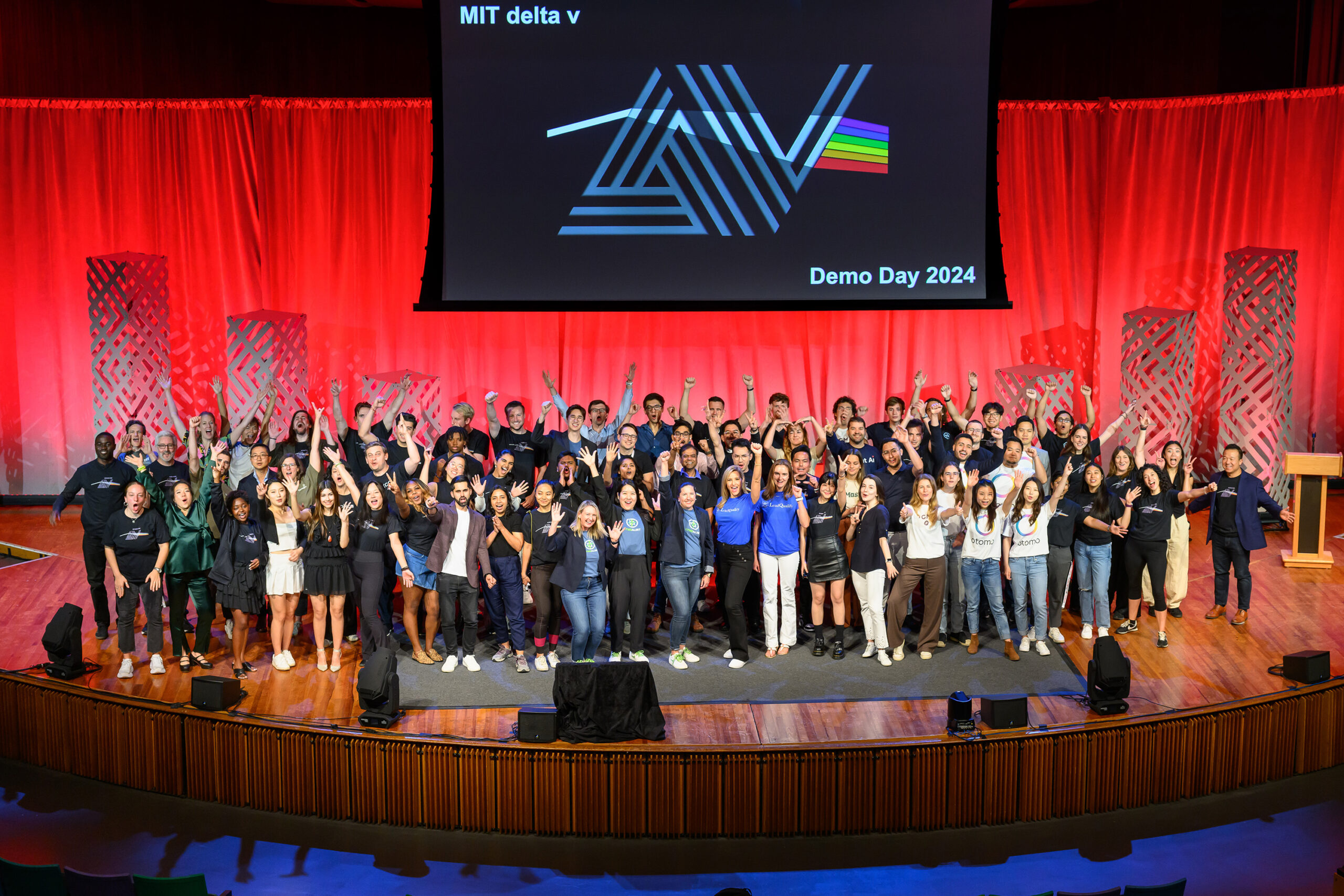This year’s highly anticipated delta v Demo Day showcased the incredible journey of MIT student entrepreneurs and the vibrant entrepreneurial ecosystem at the Martin Trust Center for MIT Entrepreneurship. It highlighted two significant truths: students can achieve remarkable advancements in creating innovative businesses within a single summer, and the Trust Center excels at organizing unforgettable events.
On September 6, students from 22 startups proudly presented their business innovations at Kresge Auditorium, marking the pinnacle of their summer efforts. The energetic atmosphere of the event was palpable, filled with cheering supporters and an engaging reception featuring live music, gourmet food, drinks, and even a unique 360-degree selfie camera.
Designed to not only celebrate these remarkable startups but also to inspire the audience, the event aimed to encourage more students at MIT to actively pursue entrepreneurship. “These teams have worked tirelessly on their ventures throughout the year, with an intensive focus during the delta v program,” stated Georgia Perakis, Interim Dean of MIT Sloan School of Management. “Today is a testament to our belief that entrepreneurship is a teachable craft.”
Innovative Startups Take the Stage
This Demo Day featured 50 students presenting rapid-fire pitches over the course of two engaging hours, each startup explaining their unique solutions to pressing problems. Thanks to the delta v startup accelerator program, these students benefitted from invaluable mentorship, funding, and a full-time, hands-on curriculum from June to September.
The startups addressed a variety of challenges, from pet adoption and workplace burnout to tackling cardiovascular disease in India and enhancing energy storage for data centers.
One standout company, LymeAlert, developed an easy-to-use kit for home tick testing, enabling families to identify Lyme disease bacteria within a quick 20-minute timeframe. Co-founder Erin Dawicki, an MBA student and physician’s assistant, emphasized the importance of facilitating quicker diagnoses and minimizing unnecessary antibiotic use. “Lyme disease is the most common insect-transmitted illness in the U.S.,” she noted. “Our goal is to enhance healthcare accessibility through at-home tick testing.”
Another innovative startup, Ogma, leverages artificial intelligence to create sustainable catalysts for biomanufacturing. Co-founder Richard Robinet-Duffo explained their mission: “Inspired by nature, we’ve engineered nanocatalysts that mimic natural ones while being stable and cost-effective, ideally suited for complex industrial processes.” This promising technology, developed at the MIT Laboratory for Soft Materials, will soon be piloted with cleaning companies.
This year’s cohort of startups included:
Vikri.io: Transforming B2B procurement with a dual-platform for automating quotations and purchase orders, boosting transparency.
All Unique Objects: Utilizing AI to turn sketches into 3D models, streamlining design in the home decor sector.
COIL: A digital platform employing machine learning to deliver tailored hair care solutions for Black women with textured hair.
Continuity: Creating a minimally invasive device for real-time molecular monitoring in the human body.
EQORE: Innovating smart energy storage systems that can lower industrial electricity costs by up to 30%.
Expat AI: Providing AI-driven, native language support for immigrants navigating U.S. immigration forms.
Fount: An AI co-pilot for insurance marketers, optimizing their advertising strategies to reach high-value clients effectively.
Health Galaxy: Promoting cardiovascular health awareness among Indian youth through a connected platform.
Health+: An AI-powered solution dedicated to workplace mental health, enhancing productivity and preventing burnout.
Helix Carbon: Converting captured carbon dioxide into environmentally friendly fuels and chemicals for diverse industries.
Intendere: A software tool that enhances university tutoring programs, empowering students to impact their communities.
LeadQualify: AI analytics to help investment banks analyze prospecting data for high-potential client engagement.
MakerSharks: Connecting businesses with vetted manufacturers to automate procurement, significantly reducing sourcing times.
Mashi: Simplifying pet adoption with a universal application platform to match pets with loving homes.
Otomo: Employing AI for clinical workflows and personalized patient engagement, allowing doctors to devote more time to care.
Pixca: Improving onboarding processes for greenhouse workers using AI, thereby increasing agricultural productivity.
Psyche: Providing caregivers with essential tools to support children’s mental health, addressing youth mental health crises.
Sakhi: An AI-driven health literacy platform offering expectant mothers in India personalized healthcare information.
Tarragon Systems: Leveraging AI to optimize food inventory and preparation in restaurants, minimizing waste.
Thinkstruct: Accelerating literature reviews for researchers, facilitating efficient extraction and visualization of academic papers.
Celebrating MIT’s Entrepreneurial Legacy
The event also underscored the wider influence of MIT’s entrepreneurial ecosystem. Bill Aulet, Managing Director of the Trust Center, highlighted the collaborative resources from across the Institute that supported the students’ entrepreneurial journeys. “These students didn’t navigate this journey alone,” he said. “MIT combines teaching, research, and entrepreneurship to enhance the value of all three.”
Perakis honored the legacy of former MIT Sloan Professor Edward B. Roberts, whose research inspired many of the initiatives celebrated today. Roberts’ contributions were pivotal in shaping the entrepreneurial mindset at MIT, with alumni launching over 30,200 active companies by 2014, employing around 4.6 million people.
Aulet contended that events like Demo Day are essential in promoting the necessity of entrepreneurship on a global scale. “People often underestimate the impact of entrepreneurship, but MIT is leading the charge to change that perspective,” he said, emphasizing the need for entrepreneurship to be recognized as a vital field of study.
Photo credit & article inspired by: Massachusetts Institute of Technology



